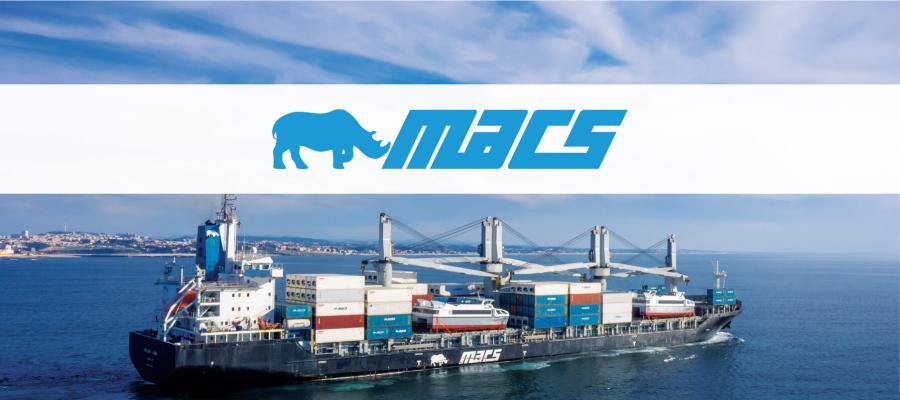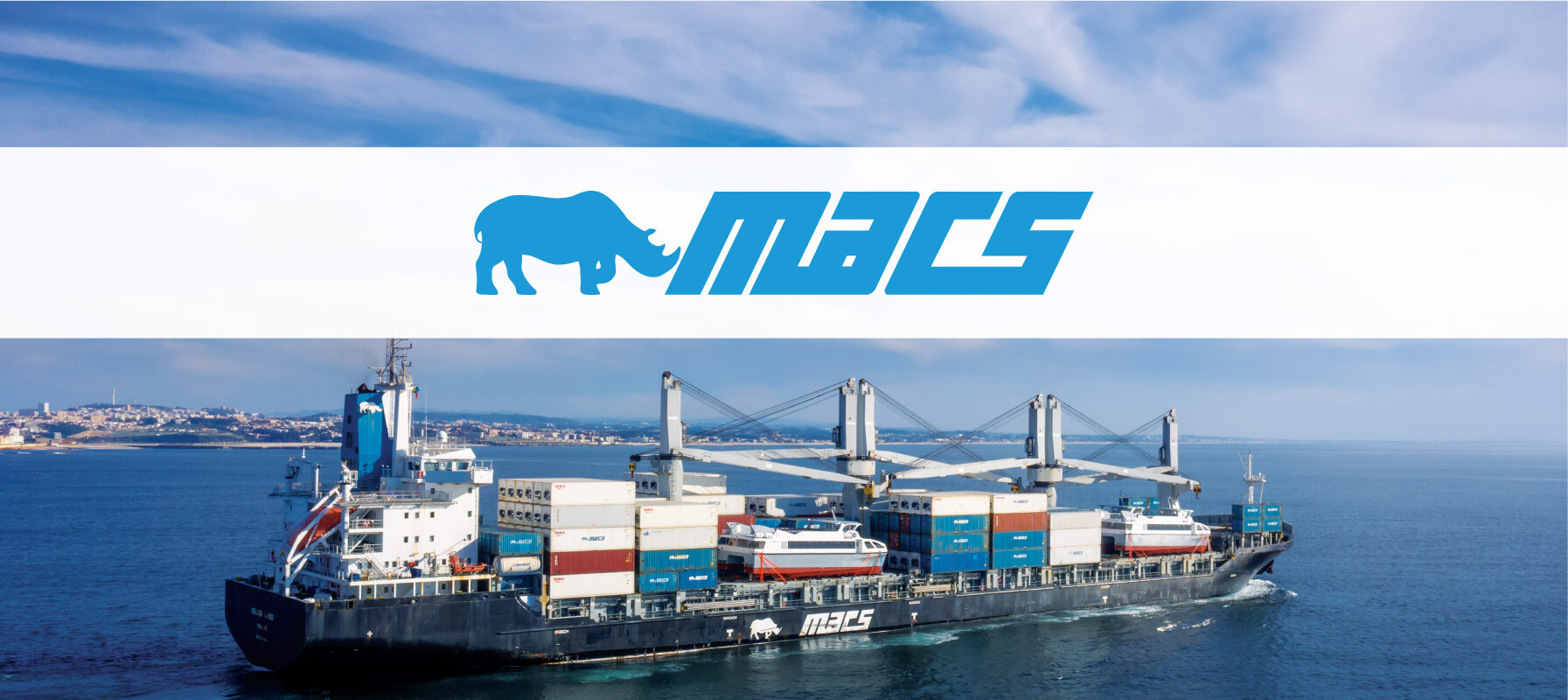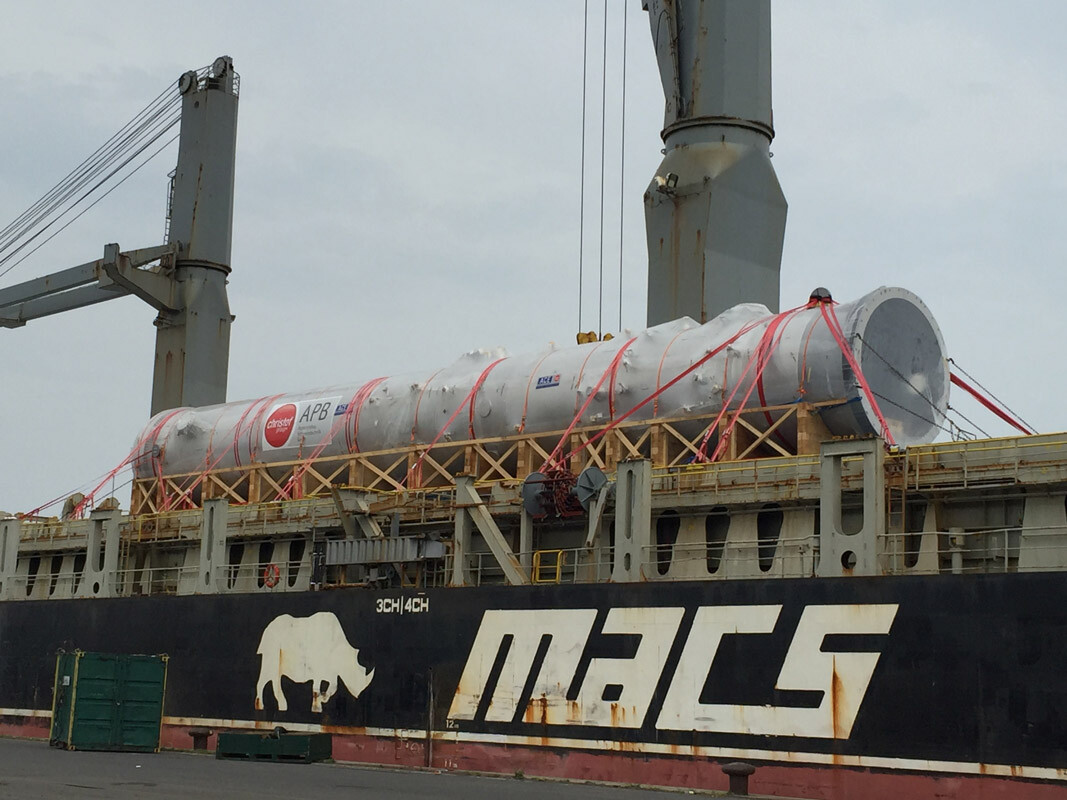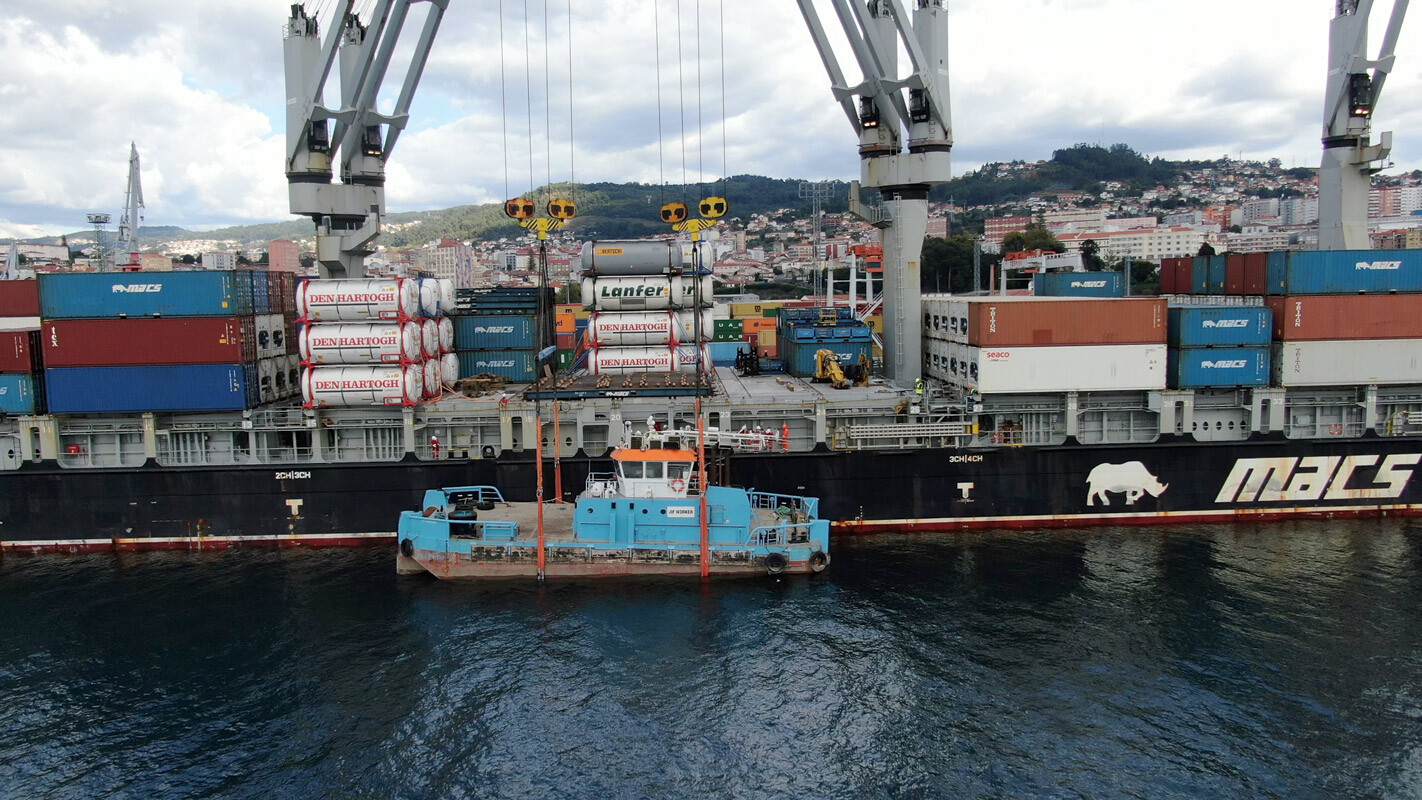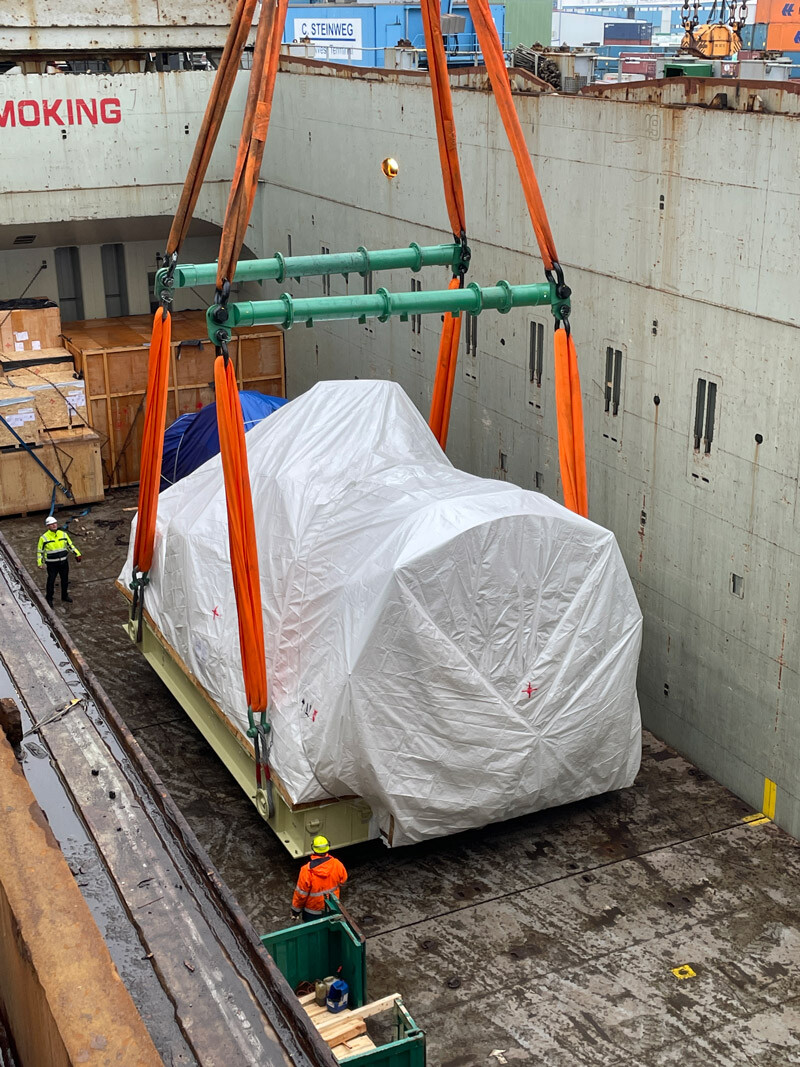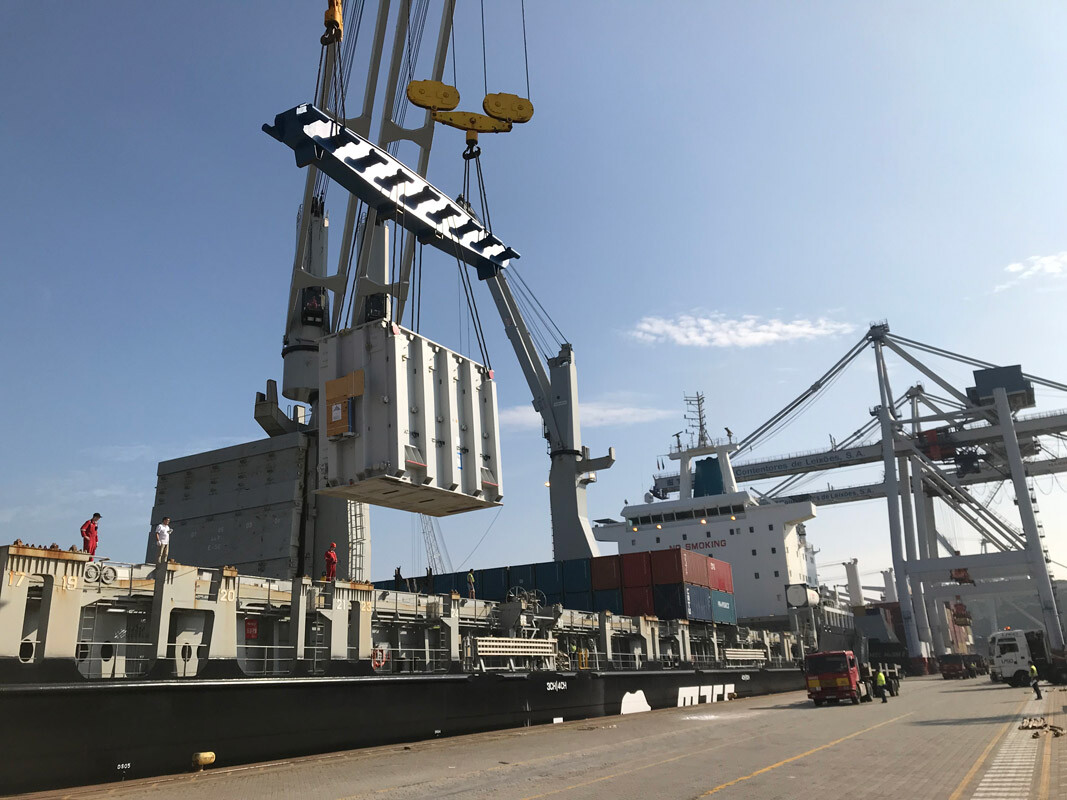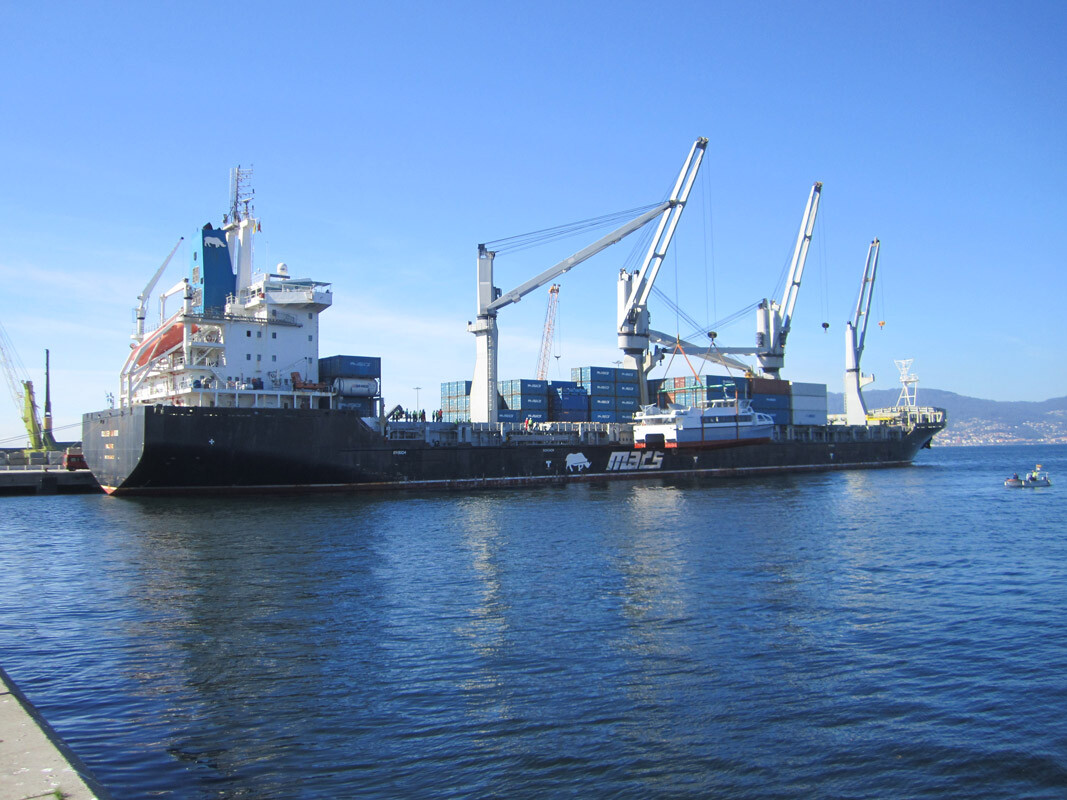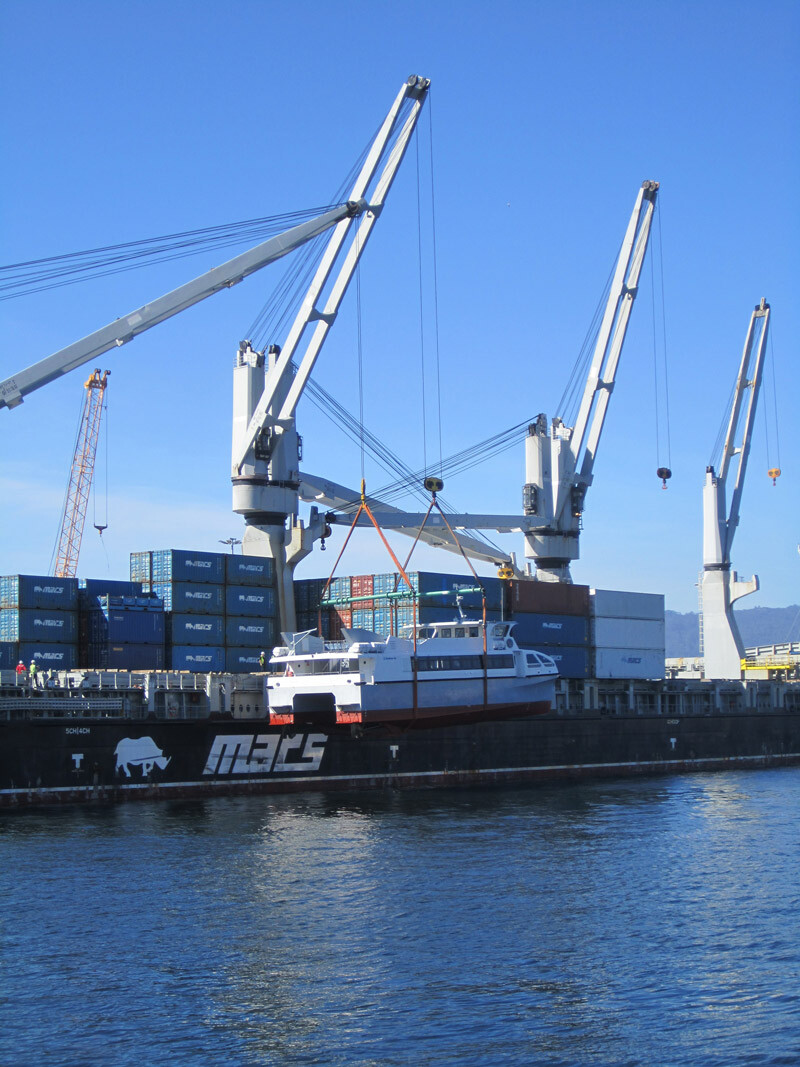
MACS is a well-known carrier on the South African trade routes. Please tell our viewers more about your trade lane normal load and discharge ports and how often you have got sailings out of Europe.
MACS vessels sail every fortnight from Hamburg and Antwerp via Leixoes to Walvis Bay, Cape Town and Durban. Every second vessel is calling additionally at Port Elizabeth and Maputo. On the return voyage, the vessels call at Durban, Cape Town and Walvis Bay before heading back to Europe where they call at Vigo, Rotterdam and Hamburg.
Do you have owned tonnage or do you charter in? What type of tonnage do you employ? Do you accept SOC containers? Do you also have your own container fleet?
Six large MPP vessels of 30-37.000 ts dwt with lifting capacity up to 240 ts are employed in the liner service. The vessels are all owned by MACS. Besides conventional and bulk cargo, containerized cargo is an important segment on board our ships. The MACS-owned container fleet consists of 20’DC, 40’HC, 40’OT, 40’FR and 40’HCRF, and all kinds of SOC are accepted as well.
Are you able to call at other ports enroute to South Africa if there is enough inducement, and have you done so before?
Since we have buffer days included in our schedule, we have the flexibility to call ports on our way like Bilbao, Saldanha Bay or Coega, especially to deliver windmill equipment or other project cargo. Anyhow, between Portugal and Namibia, we usually do not have the possibility to serve other ports as the vessel deck is full with containers and the holds are not accessible.
Some shipowners today want to act as freight forwarders, i.e., doing door-to-door. What is the policy of MACS on this? Are you what we can call “freight forwarder-friendly”?
We are experts for seaborne traffic, and we do arrange coaster and barging services from the Baltic Sea, the UK, the Mediterranean Sea, and European inland waterways to connect cargo with our main ports of call. On a few occasions, clients ask us for assistance with trucking services. We do not say “no” to them, and offer them the requested services. Forwarders play an important role for us, and as experts in their business, they typically offer many more services, far beyond what we aim to do. It is in the nature of the business that for bulk charters and container shipments under tender conditions, the contracts are done with direct clients whereas shipments of conventional cargo are typically booked via forwarders. For us, they are as important as our direct clients.
I have noticed that you also call Maputo on a regular basis. Is that an important port for you, and what can you tell us about the trade in and out of Maputo. Is it mainly southbound from Europe or are there exports, too?
In our niche market, it is another niche where our direct service is a unique shipping solution for our clients. The trade volume is not too large. That’s why only every second vessel is serving this port. The combination of containers and conventional cargo on the same one vessel makes it viable to call at the port directly. We are expecting a positive development of the Mozambican economy when the LNG project up in the North is restarting. MACS will then again offer shipping solutions into that region.
Do you have your own offices along your trade route or do you have 3rd party agents? Under the the MACS B/L, can you arrange transhipment to and from load and discharge ports? For example if cargo comes from the UK, then you can arrange a through B/L?
In most of our ports of call, MACS has opened our own offices. In some ports, like Maputo, Vigo or Immingham, we are represented by agents–some of them have been working with MACS for 40 years already.
Our UK service is based on a dedicated fortnightly service from Immingham to Antwerp and ex-Rotterdam to Immingham by RoRo-vessels, capable of accepting not only bookings of vehicles, but also bookings of conventional cargo and containers. The goods are then connecting to our vessels serving Southern Africa (MACS service) and Mexico/USG (Stinnes Sanmex service) and are shipped under a through B/L.
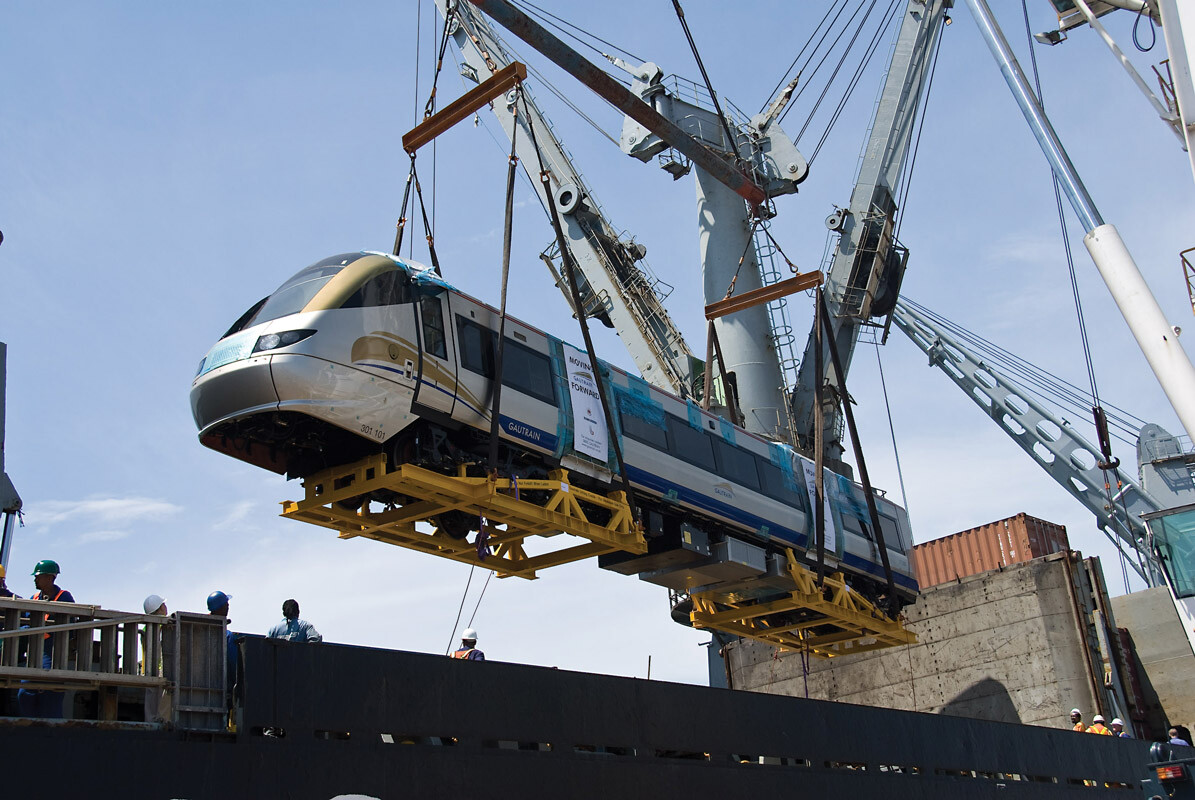
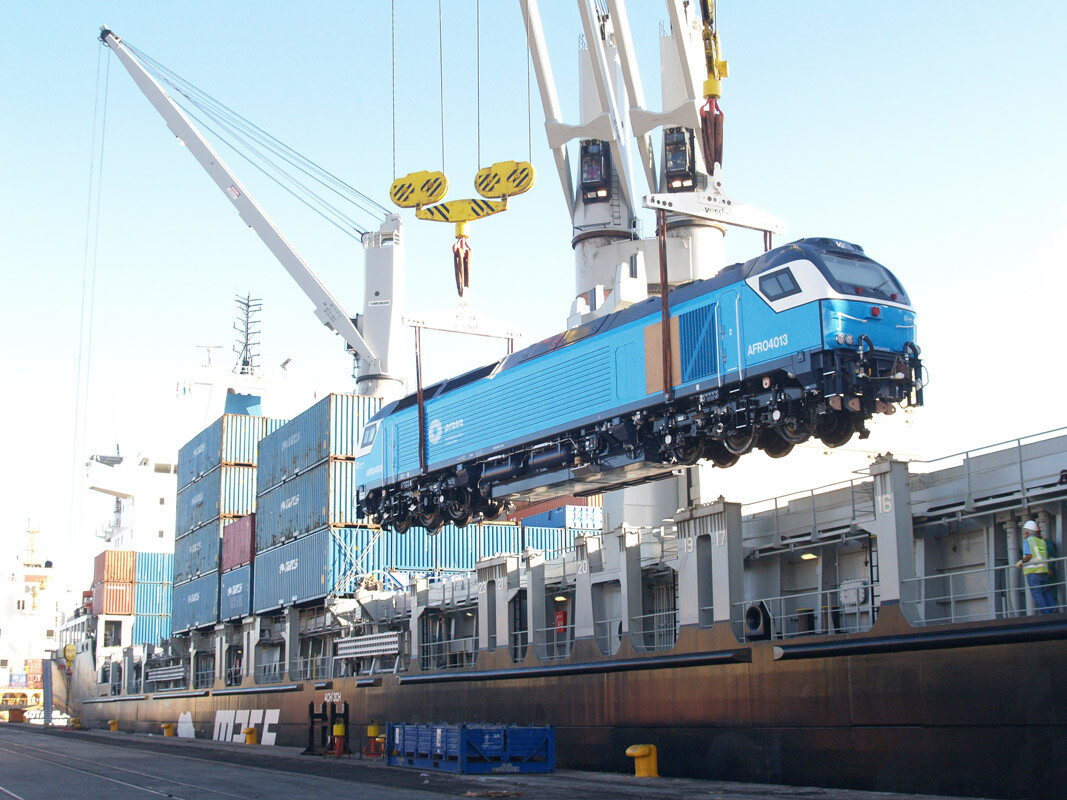
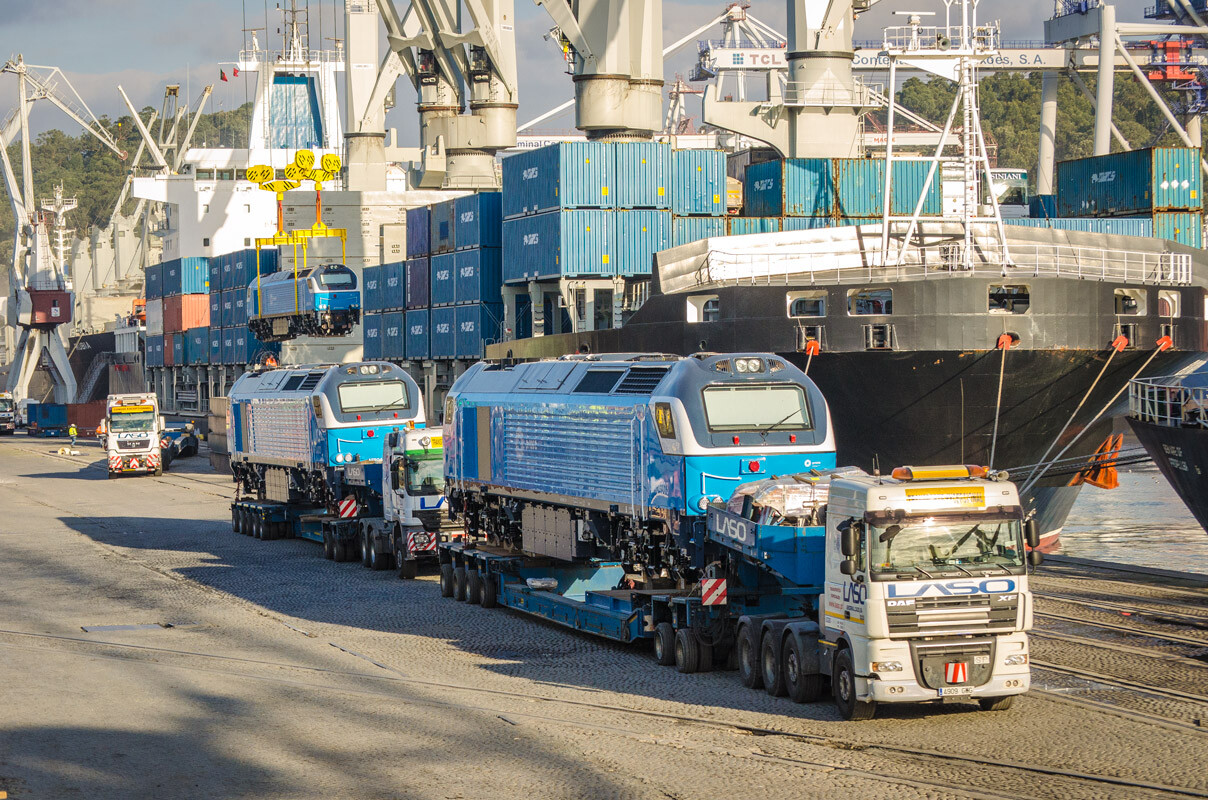
How would it be best for our readers to get in touch with you, and to whom should they speak for rates and solutions for both southbound and northbound trade?
We have qualified sales staff in all our own sales offices and agencies, and they are glad to assist with all kinds of transport solutions. Their contact details are available on our website www.macship.com. Those who prefer to talk directly to the line may contact my team or myself of the MACS southbound line management in Hamburg under lmt-europe@macship.com or the MACS northbound line management in Cape Town under commercial@macship.com.


